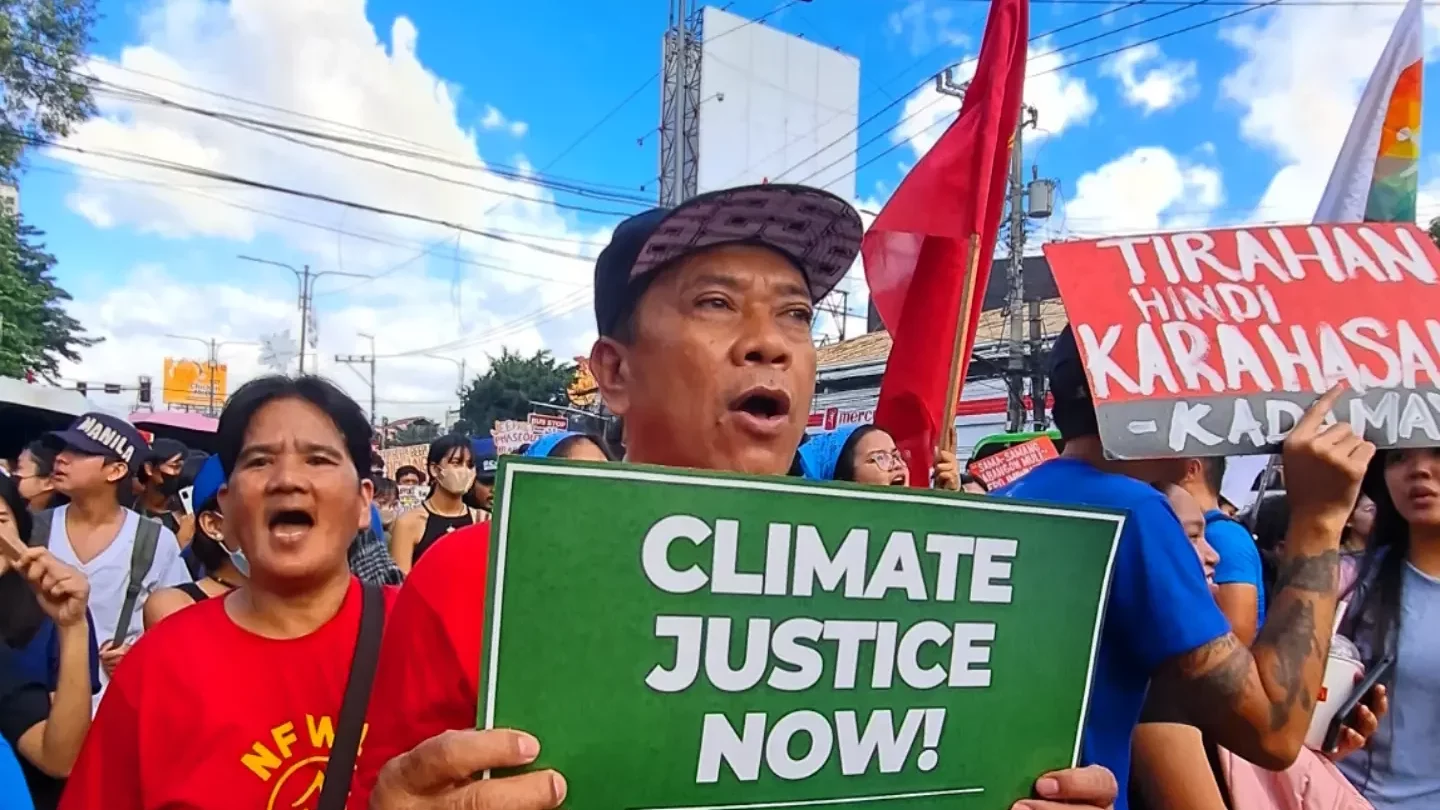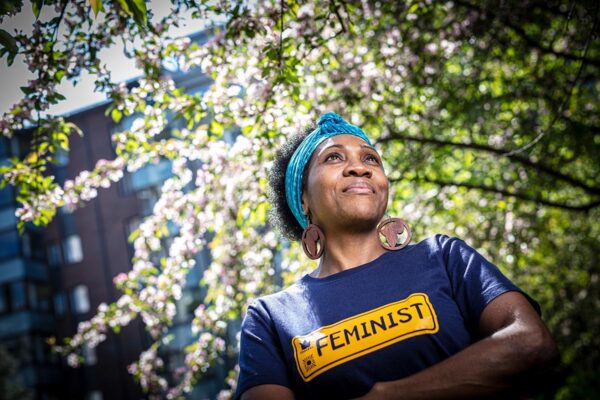
Climate change is revolutionising the world of work
The transition to low-carbon societies to mitigate climate change is a major challenge for workers. It must not wreck anyone’s livelihood, and the required changes must not discriminate between different population groups.
A just transition ensures that employees in different sectors can keep up with the change and secure their livelihoods as different sectors of business develop in a more environmentally friendly and low-carbon direction.
Change poses both risks and opportunities for the labour market: work changes and new jobs are created – but jobs are also lost.
The circular economy and the development of low-carbon materials create new production and challenge old ones.
The change is reflected in different ways in different sectors
- With the electrification of transport, the production of internal combustion engines gives way to the battery industry.
- The energy sector transition will reduce the use of fossil energy sources and invest in renewable forms of energy. This may mean less or no work in coal mines, for example, but it opens opportunities for wind or solar plant builders and workers.
- In public services such as rescue work, health and water supply, the increase in disasters caused by extreme weather events presents workers with new challenges.
The need for social security may increase
Climate change will inevitably change working conditions. Workers working outdoors, such as buildings, are plagued by increasing heat. In agriculture, on the other hand, working conditions are affected by drought, floods, severe storms and frosts. The same phenomena also cause weak harvests.
Measures to combat global warming may therefore affect people’s ability to support themselves and their families. The employment relationships of people working amid change are becoming more precarious. In addition, new jobs require new kinds of skills. It could mean that former employees lose their jobs.
Investments in new forms of energy may also mean that an unreasonably large share of the water and electricity needed by a low-income family will be taken out of the bank account. That is why social security must be developed so that those who become unemployed and the weaker sections of society receive support.
However, a just transition requires keeping the rising cost of living under control and maintaining access to public services such as energy and water for all citizens.
We need a fair climate policy
International climate policy must ensure that developing countries do not have to pay a disproportionate share of the impacts of climate change. In this situation, the global and Finnish trade union movement has an important role to play in ensuring that employees are active participants in the change.
What is the role of the trade union movement?
The goal of a just transition is enshrined in the Paris Agreement on climate change signed in 2015. Based on this, the International Labour Organization ILO has outlined the principles on which the activities of the global trade union movement are based. From the employees’ point of view, the key objectives are:
- Employee involvement: Involving employees in planning, evaluating and monitoring climate actions and strategies
- Anticipating change: Climate and energy strategies anticipate and act on employment and skills impacts
- Change security: If jobs are reduced due to climate policy, workers’ livelihoods must be secured.
- Local communities: The impact of climate and energy policies on regional and local communities must always be assessed in the context of climate plans
Employees must understand the impacts of climate change and be involved in making choices and decisions on how to prepare for changes. This way, the trade union movement can influence the fairness of the change.
Unions involved in influencing

Trade unions must be involved at the tables where change and transition are planned – whether it is a question of national climate policy guidelines, companies’ strategy work or the planning of workplace-level changes.
Trade unions play an important role in advocacy and legislative work to ensure, among other things, access to new and developing forms of energy for all.
Unions must be involved in ensuring that the need for change is anticipated in good time and that employees are trained for tasks that require new or different skills. In the best case, employees have the opportunity for continuous on-the-job learning.
Unions must be involved in influencing laws regarding working conditions. It must be ensured that workers do not work in conditions that are dangerous to them and that they recognise the new risks posed by climate change.
Guaranteeing social security for all categories of workers is also a key part of the important message from the trade unions: leave no one behind.
What is the role of SASK?
As a human rights organisation at work, SASK is committed to the fight against climate change and aims to influence its social consequences through its work. The UN’s Sustainable Development Goals provide the framework for operations.
In accordance with the principles of the ILO and the global trade union movement, SASK’s work strengthens the trade union movement in the work against climate change.
We aim to raise awareness among unions in the Global South about climate change, its consequences and the importance of protecting workers’ interests.

This means supporting training, strategy work, campaigning and advocacy work related to climate justice among the trade unions in our project countries.
SASK supports local trade unions to act in ways they define themselves.
Just transition projects
In SASK’s project work, a just transition is reflected in different ways in different industries. In some projects, it is a key objective, while in others the theme emerges as individual sub-objectives or activities. Over time, the just transition will become more generally visible as part of SASK’s project activities.
Networks and working groups
SASK networks with the international trade union movement on issues related to climate justice and just transition. Important partners are trade union solidarity organisations, especially in the Nordic countries, the Netherlands, Germany and Australia.
Together with project partners and other actors, experiences and strategies will be exchanged, studies will be commissioned, and cooperation will be coordinated to maximise its overall impact.
In Finland, SASK has created a Just Transition Network with its member organisations, where the topic is discussed from a global perspective, challenges and opportunities in different sectors and experiences are exchanged.
In SASK’s domestic operations, the just transition can be seen, for example, in training and campaigns.
SASK is a member of Fingo’s Climate Justice and Finance Working Group, which discusses and coordinates statements and initiatives on issues related to climate policy and climate finance.
Contact
Want to know more about just transition? Contact Anna Perttula, anna.perttula@sask.fi.
More information
- Intergovernmental Panel on Climate Change (IPCC)
- Paris Agreement on climate change (pdf in English)
- International Labour Organization (ILO) Guide to a Just Transition (pdf)
Most of SASK’s projects are carried out in cooperation with international trade unions and their member organisations. They produce training materials, outline strategies and campaign for a just transition. Below are links to the organisations’ materials.
Materials of international trade union organizations
- ITUC: Just Transition Centre
- IndustriALL: A trade union guide of practice for a just transition
- PSI: Confronting the climate crisis: Time to act (pdf)
- ITF: A Just Transition for Urban Transport Workers
- Education International: Teach for the planet
- BWI: 100 Climate Actions Report
- UNI: Ignoring climate change not an option – strategies for trade union action
- IUF: Climate crisis activity book (pdf)


